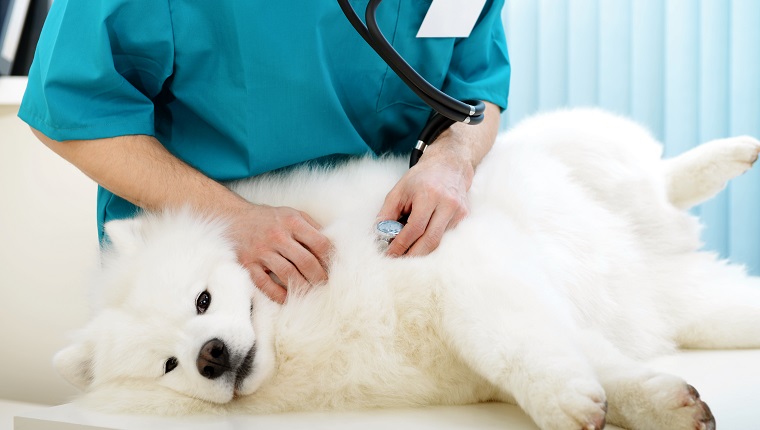Atrial septal defect in dogs, also known as ASD, is a medical condition where a hole appears in the septum, which is the wall that separates the left and right atria in the heart.
This defect can affect a dog’s oxygen levels and lead to problems with exercising and breathing. The condition is congenital, and certain breeds, including Boxers, seem to be more predisposed to suffering from it.
If you see signs that your dog is suffering from heart issues, then you must consult your veterinarian for a proper diagnosis and advice. Here’s what you should know about the symptoms, causes, and treatments of atrial septal defect in dogs.
Symptoms Of Atrial Septal Defect In Dogs
Atrial septal defect in dogs can produce a range of symptoms. The symptoms can vary depending on where the defect occurs and whether it causes blood to overload the left or right atrium.
Some of the most common symptoms include:
- Reluctance to exercise
- Heart murmurs
- Coughing
- Skin turning blue (known as cyanosis)
- Breathing problems
Causes Of Atrial Septal Defect In Dogs

The cause of atrial septal defect in dogs is unknown, but it is considered to be a congenital issue, meaning that a dog will be born with it.
The Samoyed and Boxer breeds of dog appear to have the highest predisposition for this condition.
Veterinary Treatments
If you think that your dog has developed atrial septal defect, then your veterinarian will want to ask about your dog’s full medical history.
A physical examination will take place, as well as comprehensive blood tests. The use of electrocardiograms and X-rays can also show any issues that are affecting the lungs.
In general, dogs diagnosed with this condition usually require a stay in hospital. This can help to stabilize a dog’s health. In extreme cases, vets might suggest surgery as an option.
In less severe cases, medication can help to improve a dog’s heart function. As ever, if your vet prescribes your dog any medication, it’s vital that you stick to the precise dosage and frequency instructions and complete the full course of medicine.
In terms of lifestyle changes, lowering your dog’s sodium intake and limiting exercise can help aid their recovery. Your vet can advise you on how to take these steps safely.
Does your dog suffer from atrial septal defect? What kind of treatment does your vet recommend? Tell us all about it in the comments below.






